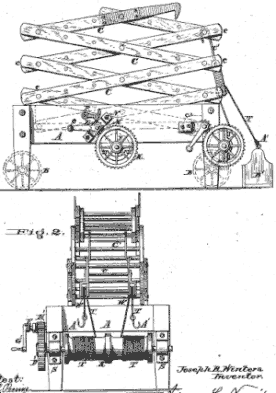Joseph Winters was born in 1816 in near Harper’s Ferry, Virginia (now West Virginia) to James Winters, an African American brick maker who worked at the federal arsenal there, and a Shawnee Indian mother whose name is unknown. Winters was raised by his grandmother Betsy Cross in Waterford, Virginia. Cross was known locally as the “Indian Doctor woman” because she was a herbalist and healer.
Winters apparently also learned the brickmaking trade. In 1830, at the age of 14, he relocated to Chambersburg, Pennsylvania although it is unclear as to whether he moved on his own or with his grandmother. During this time that Winters lived in Chambersburg, he was active in the Underground Railroad, a city known for Quaker abolitionist activity. He was nicknamed “Indian Dick” by his friends due to his mixed race. In his now-lost autobiography, Winters claimed to have met and worked with Frederick Douglass just before the famous John Brown Raid on Harper’s Ferry in 1859 but Douglass mentions another person in his own autobiography.
Winters is most noted as an inventor, a career which began long after the Civil War. In the 1870s as building became taller, Winters noticed that firemen had to take ladders off of their horse-drawn wagons to climb to windows, rescue people, and spray water on fires. He thought they should have ladders that they could raise that were already mounted on fire wagons. The ladders had to be foldable or collapsible so that fire wagons could turn corners in narrow streets and alleys. He built a fire wagon made with a mounted ladder that could be folded for his hometown of Chambersburg and received a patent for it on May 7, 1878. He received a second patent for an improved design on April 8, 1879.
Three years later in 1882 Winters received a patent for a fire escape ladder that could be attached to buildings. While all of his inventions saved lives and made firefighting and building escape easier, Winters reportedly received much praise but little money for his inventions. As a consequence, he engaged in unsuccessful oil prospecting in the Chambersburg area. He dabbled in politics and during the 1896 presidential campaign wrote a campaign song for Democrat William Jennings Bryan. Winters, an avid outdoorsman, apparently was locally noted for hunting, fishing, and fly-tying.
It is unknown if Winters married or had children. He died sometime in 1916 near Chambersburg and is buried in the local Mount Lebanon Cemetery.

